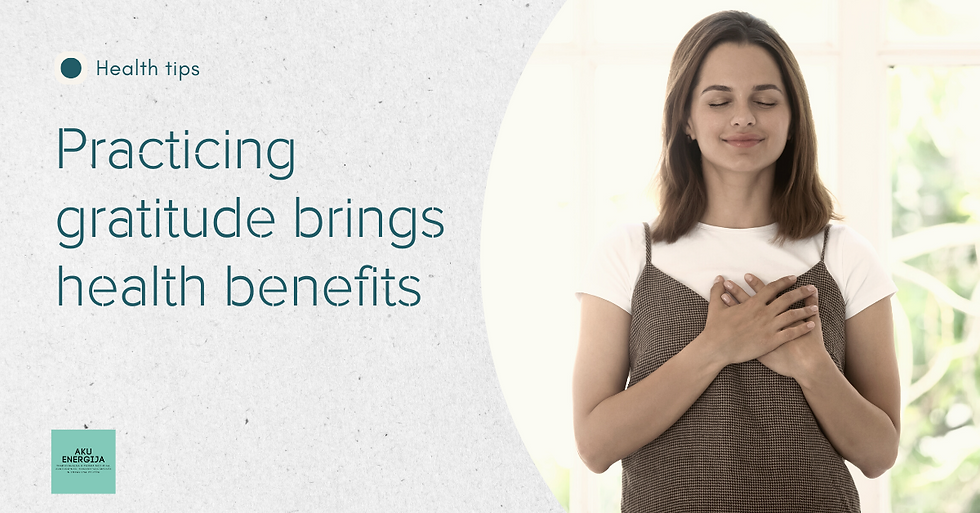Natural Remedies to Help Reduce Anxiety
- Aku Energija
- Oct 6, 2023
- 3 min read
Anxiety, which is usually characterised by feeling unsettled, worried or afraid, is our body’s natural response to stress. Anxiety isn’t all bad, though. It makes you aware of the danger, motivates you to stay organized and prepared, and helps you calculate risks. Some anxiety is a normal part of life. However, when anxiety becomes a daily struggle, it’s time to act before it snowballs.

There are numerous different measures out there to help people manage and reduce anxiety, here are some ideas.
Acupressure/ Acupuncture
Acupressure uses the wisdom of the “meridian system” which has been studied and refined for over three thousand years in Chinese medicine, to invoke changes in the body. By applying pressure to certain areas of the body, we are able to affect the nervous system and encourage the release of endorphins into our bloodstream to increase a sense of calm. One area of the body that is particularly great for reducing stress is the ear. The ears have tons of nerve endings, so stimulating these points by rubbing your ears and pulling on the lobes can help your body relax. [Read more: Pericardium 6 (PC6)- Acupoint for nausea and anxiety] [Read more: Deep relaxation with TCM - regain inner strength to fight stress, anxiety, depression and chronic fatigue.]
Lavender essential oil
With benefits discovered more than 2,500 years ago, the lavender essential oil has become one of the most popular essential oils in the world. In a 2013 evidence-based study, researchers discovered that taking 80mg capsules of lavender essential oil alleviates anxiety, sleep disturbance, and depression. In this same study, results showed the lavender essential oil did not lead to adverse effects, drug interactions, or withdrawal symptoms. To relieve stress, inhale 100% pure lavender essential oil straight from the bottle or apply it topically behind the ears, on the temples, and on the back of the neck. It is also safe to combine lavender essential oil with vetiver oil.
Lower sugar and processed food intake
Excessive sugar, fruits and processed foods can create sugar highs and lows throughout the day, which can lead to symptoms of anxiety. These foods can also cause mood swings and altered energy levels, making it potentially harder to gain control of anxiety symptoms. Foods such as cookies, pastries, soda, fast foods, fried foods, processed meat, and non-local/seasonal fruit may best be avoided when it comes to easing anxiety. [Read more: TCM Dietary advice]
Herbal Medicine
Herbal medicine offers countless options for stress relief. It is very effective because when working with a licensed herbalist, they are able to customize a herbal formula to suit each individual patient, since everyone experiences anxiety differently. For instance, some people when stressed can get palpitations, need to scream, and clean every inch of their house, while others can’t get out of bed, are weepy, and lack all motivation. Chinese medicine has rich pharmacology which is used to treat the individual based not only on their symptoms but also the root cause of their suffering. Here at Yinova, we custom blend herbal formulas, uniquely tailored to each individual patient. [Read more: TCM vs. Western Medicine] [Read more: Your Body as a Garden]
Deep Breathing
You may notice that when you’re stressed, your breaths get more shallow. In fact, one of the main symptoms of a panic attack is feeling like you can’t breathe. This is because the body has shifted to the sympathetic nervous system’s “fight or flight” response due to high levels of cortisol and adrenaline. It’s extremely helpful during stressful times to deepen your inhales and take slow, steady exhales. You want to engage in diaphragmatic breathing, which means the diaphragm will expand downward as you inhale massaging the internal organs, and shifting your nervous shift into a parasympathetic where you can rest. Deep breathing also activates the vagus nerve which turns off your stress response. As you slow your breathing, your heart rate and blood pressure will decrease. [Read more: The benefits of Tai Chi] [Read more: Simple mindfulness exercises]







Comments